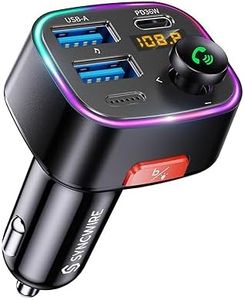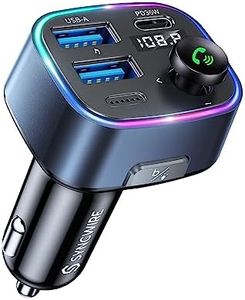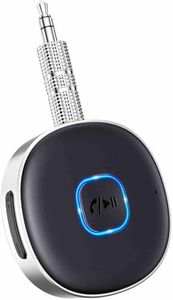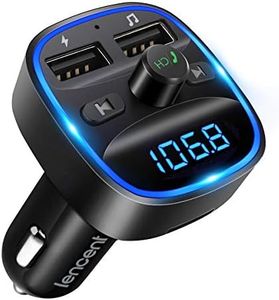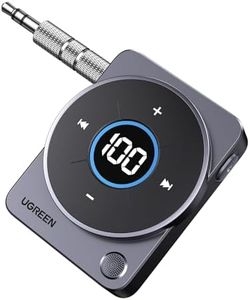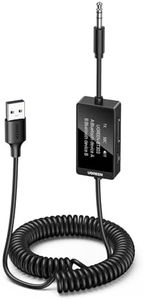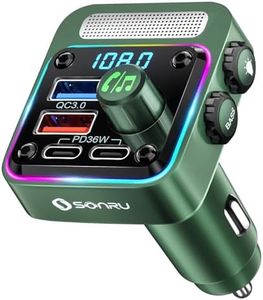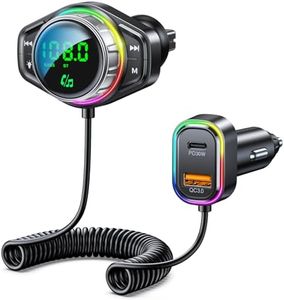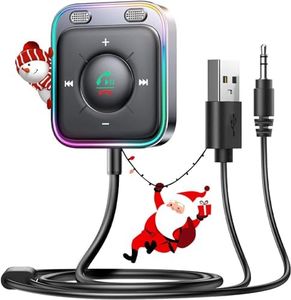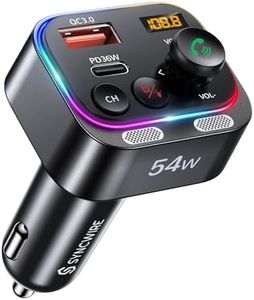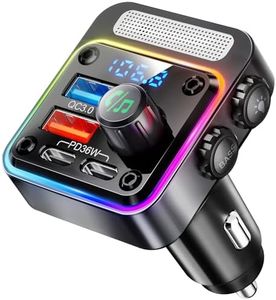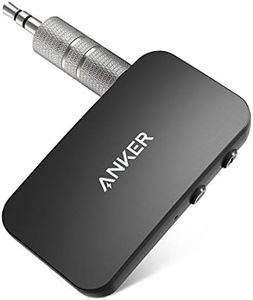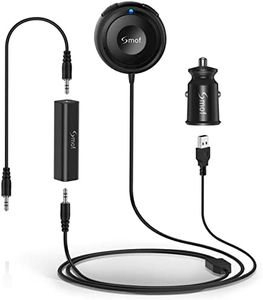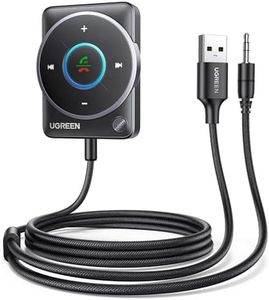We Use CookiesWe use cookies to enhance the security, performance,
functionality and for analytical and promotional activities. By continuing to browse this site you
are agreeing to our privacy policy
10 Best Car Bluetooth Adapters
From leading brands and best sellers available on the web.Recommended lists
Buying Guide for the Best Car Bluetooth Adapters
Choosing the right car Bluetooth adapter can significantly enhance your driving experience by allowing you to make hands-free calls, stream music, and use navigation apps safely. To find the best fit for your needs, it's important to understand the key specifications and features that differentiate various models. Here are the main specs to consider and how to navigate them.CompatibilityCompatibility refers to whether the Bluetooth adapter will work with your car's audio system and your devices. This is important because not all adapters are universally compatible. Some are designed for specific car models or audio systems. To navigate this, check if the adapter supports your car's make and model, and ensure it works with your smartphone's operating system (iOS, Android, etc.). If you have an older car, you might need an adapter that connects via the auxiliary port or FM transmitter.
Bluetooth VersionThe Bluetooth version determines the quality and stability of the wireless connection. Newer versions (like Bluetooth 5.0) offer better range, faster data transfer, and improved audio quality compared to older versions (like Bluetooth 3.0). If you want the best performance, look for adapters with the latest Bluetooth version. However, if your needs are basic, an older version might suffice.
Audio QualityAudio quality is crucial for a good listening experience. This spec is influenced by the Bluetooth version and the audio codecs supported by the adapter. Codecs like aptX and AAC can provide higher quality audio. If you are an audiophile or frequently listen to music in your car, prioritize adapters that support high-quality audio codecs. For casual listeners, standard audio quality might be adequate.
Hands-Free CallingHands-free calling allows you to make and receive calls without taking your hands off the wheel. This feature is important for safety and convenience. Look for adapters with built-in microphones and noise-cancellation technology to ensure clear call quality. If you often make calls while driving, this feature should be a priority.
Power SourceThe power source determines how the adapter is powered. Some adapters plug into the car's cigarette lighter, while others have built-in batteries. Adapters that plug into the cigarette lighter are generally more reliable for long trips, as they don't need recharging. Battery-powered adapters offer more flexibility in placement but require regular charging. Choose based on your preference for convenience and reliability.
Ease of UseEase of use refers to how simple it is to set up and operate the adapter. This includes the pairing process, control buttons, and user interface. An adapter with intuitive controls and easy pairing can make your experience much smoother. If you prefer a hassle-free setup, look for models with straightforward instructions and minimal buttons.
Additional FeaturesAdditional features can enhance the functionality of the adapter. These might include USB charging ports, voice assistant integration, or multi-device pairing. Consider what extra features would be beneficial for you. For example, if you need to charge your phone while using the adapter, look for one with USB ports. If you use voice assistants frequently, ensure the adapter supports this feature.
